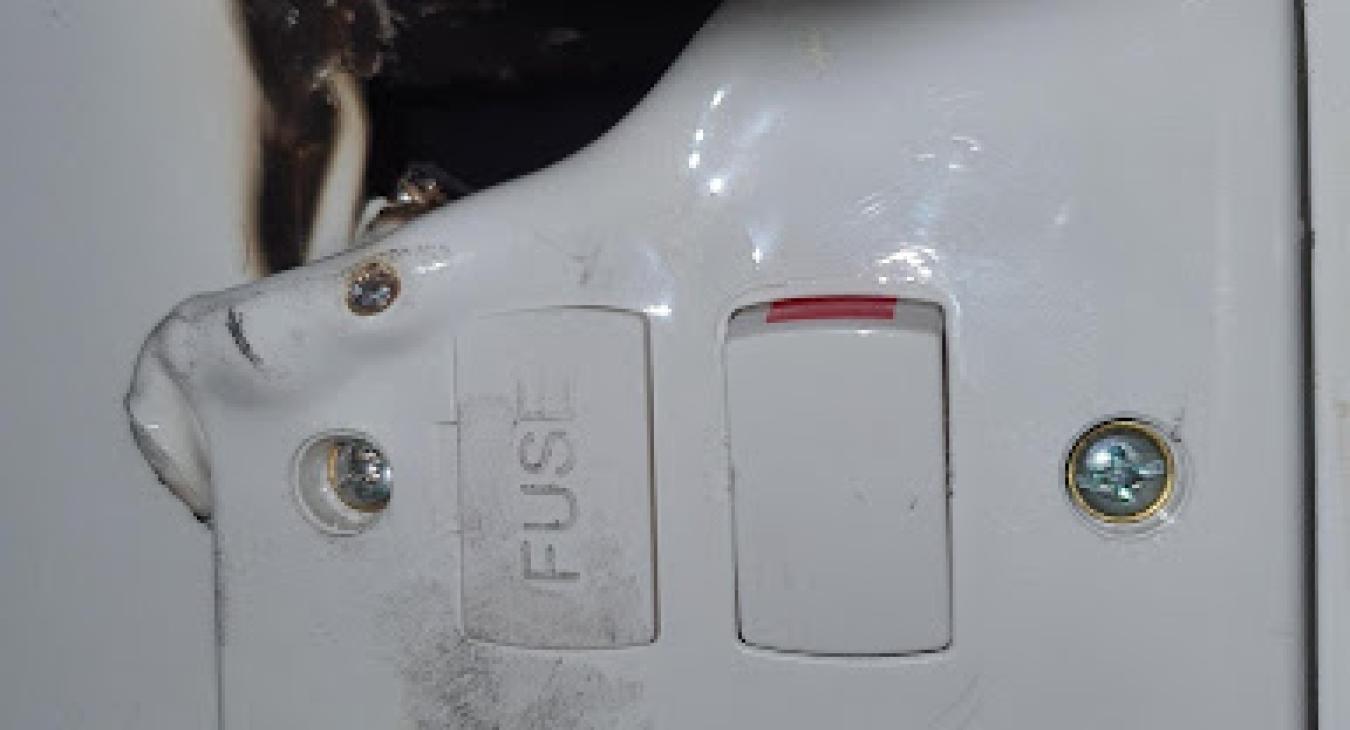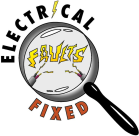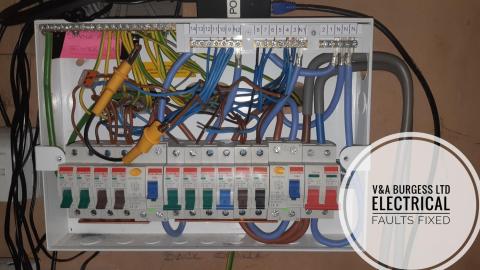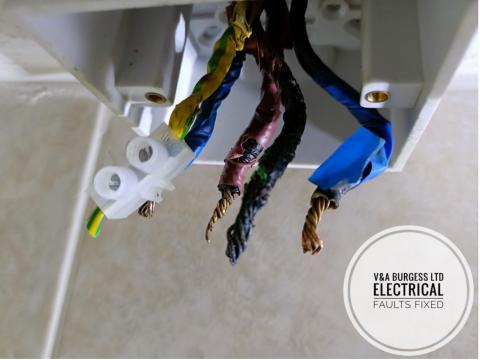
Table of Contents
- An electrical fire is a serious risk in certain electrical installations and can cause a variety of damage to the home or building in which it occurs.
- Fire facts:
- What are the causes of electrical fires?
- Careless use of power tools
- Poor wiring
- Old consumer units or fuse boxes
- Excessive use of extension leads and overloading
- What can be done to prevent an electrical fire?
- How do I get an inspection carried out?
1) An electrical fire is a serious risk in certain electrical installations and can cause a variety of damage to the home or building in which it occurs.
The electrical safety-first website has the following information.
Back to top2) Fire facts:
- 46 deaths per year*
- 2,469 injuries per year*
- Over £100 million in damage to private property.
- Faulty appliances alone cause £41.6 million of damage per year, with electric cookers (£24m) and lighting (£13m) among the largest contributors.
(*An electrical installation is the wiring in a home including the electrical intake, fuse box and the lighting and power circuits.) (*Department for Communities and Local Government, Fire Statistics 2011/12) Source: https://www.electricalsafetyfirst.org.uk/media/1592/fire-factsheet.pdf
An electrical fire can occur due to a number of reasons although the most common cause is faulty appliances or electrical products. Another cause is the misuse of the electrical installation or faults in the electrical installation itself.
We can see from the photographs that this electrical fire was very serious and caused some damage to the property. The flames melted the electrical accessory and damaged the wall before the consumer unit / fuse box tripped off.
Back to top3) What are the causes of electrical fires?
- Loose wiring: This is a major cause of overheating, arcing (where electrical current is jumping an air gap between two points causing heat, pops, and crackling), loose connections. Loose wiring can be a very serious issue in the home and is quite common due to the fact that few electrical installations are actually properly maintained in the home.
- Heat: Fires often start as a result of overheating in the electrical installation. When a high enough temperature is reached the material surrounding the source can ignite, and assuming there is adequate fuel for the fire, the fire can continue to spread. In our homes, this is often the case due to the materials we use to decorate and furnish the home so fire can take hold rather quickly. The photograph shows a fire that started in an airing cupboard but fortunately the cupboard was empty of the typical fabrics and materials that are normally stored there.
4) Careless use of power tools
Without proper care, use and maintenance of power tools fires can start easily. I remember a job we were called to where the homeowner had been cutting metal in the garage using an angle grinder and then had left to mow the lawn at the back of the house. When he returned the garage was ablaze and given there was plenty of sawdust, chemicals, and flammable materials in there the fire took hold quickly. The garage, consumer unit, wiring and belongings were absolutely destroyed in a matter of minutes.
Back to top5) Poor wiring
DIY wiring can be a major cause of household fires. If wiring is not carried out to BS7671 wiring regulations there can be many dangers lurking undetected, sometimes for many years until a secondary fault develops. Just because the new socket, switch or shed supply appears to be work great following DIY installation does NOT mean that it is safe or compliant. Old wiring that has not been replaced or maintained can lead to electrical fires also.
Back to top6) Old consumer units or fuse boxes
Despite the fact that electricity continues to flow, sockets and lights continue to work and everything seems fine does not mean that everything is okay. Many homes still have old rewireable fuse boxes in them and without regular professional inspection and maintenance, these boxes can be a cause of problems. Over time, connections become loose through the expansion and contraction of wiring due to normal use. When electrical wiring has an electrical current flowing through it, it heats up and then cools down once the demand for power has finished. This heating and cooling causes expansion and contraction which can cause wiring to work loose. Our supply frequency at 50 Hz also causes a tiny vibration on the cabling. When decades of use and these two other factors are combined, wiring can work loose. ☹
7) Excessive use of extension leads and overloading
Using extension leads can lead to overheating of the electrical system. Most extension leads are rated to 13 amps of electrical current and can safely carry 10 amps continuously. It is rather easy to overload these leads with high powered appliances such as washing machines, dishwashers, toasters, kettles, irons and so on. Any high-powered devices should ideally not be used with an extension lead and if they are, care should be taken to calculate the maximum load on the extension lead.
Back to top8) What can be done to prevent an electrical fire?
If your home has not been professionally inspected in the last ten years then this is a good place to start. A qualified electrician has the knowledge and experience to carry out this inspection for you. A thorough home electrical inspection typically takes several hours and involves a 6-to-8-page report once completed. The bigger the home or the more electrical circuits that there are (the more switches in your consumer unit / fuse box) the longer an inspection takes.
Your electrician will check things like earthing and bonding (earthing to pipework), cable insulation quality, checks for dangerous situations, resistance on circuits to make sure they will switch off in time during an electrical fault and much more. The electrician will also check all of the electrical accessories visually and a number of them for the wiring behind to ensure that the connections are tight and the wiring is in good condition. You can also carry out some checks yourself on your appliances to make sure that the cords are not damaged and the appliances are in good condition. Ensure that the fuses are the correct size and there are no signs of overheating.
Back to top9) How do I get an inspection carried out?
For more information on electrical inspections, what to ask for and what to expect, you can check our safety electrical inspections page. If you have any questions then feel free to use our contact form and we WILL get back to you quickly. https://www.electricalfaultsfixed.co.uk/electrical-safety-checks-eicr The important thing to remember is NOT to worry. Do not sit around wondering if everything is ok, get a professional in to check for you if you are unsure or call us for an informal chat to discuss your homes electrical system. Beware of low-cost electrical inspections as these are often carried out very quickly and can miss the checking of key safety features. Typically, 3 bed semi-detached homes take around 4 hours to inspect and produce a report. This can sometimes take longer if you would like every switch and socket checked.
📞 01925 595 980 (Warrington)
📞 0151 351 4011 (Liverpool)
📧 Enquire online
💻 Visit our website
Back to top










